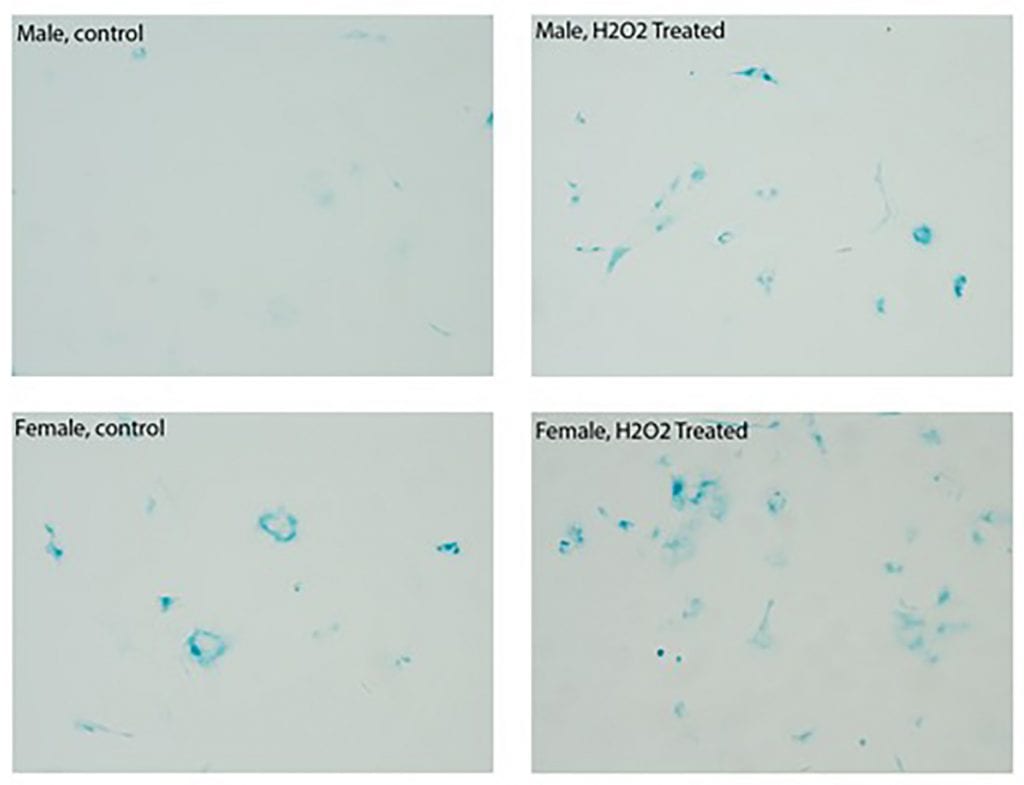Senescence
We are interested in understanding how sex differences in the tumor microenvironment may influence brain cancer susceptibility in males and females. Men have a greater risk of developing brain tumors and a lower rate of survival compared to women. With older age, the risk for brain tumors also increases more rapidly for men than women. Patient sex likely has a large influence on brain tumor formation and growth, particularly in age-associated processes. One mechanism by which age is associated with increasing cancer risk is in the biology of cellular senescence. Over time, cells accumulate damage in the form of mutations. As a protective mechanism against cancer, damaged cells can retire and permanently halt their growth through a process known as senescence. With age, senescent cells accumulate in the body, where they exert potent effects on neighboring cells and tissues, including the release of compounds that influence tumor formation and growth. The role of senescent cells in the brain remains largely unexplored.
Currently we are investigating a number of critical questions related to this project, including whether male and female cells regulate the senescence response differently, whether senescent cells exhibit sex differences in the compounds that they secrete, and how these compounds influence the growth of male and female brain tumor cells. Continued research of this relationship between sex, senescence, and brain tumors will be insightful in uncovering age- and sex-related risk factors for brain tumors.
